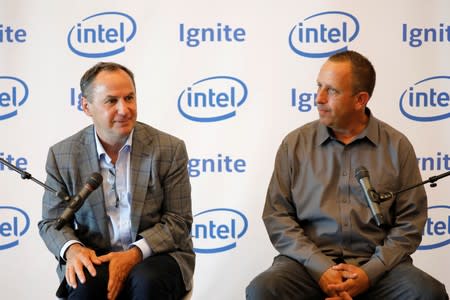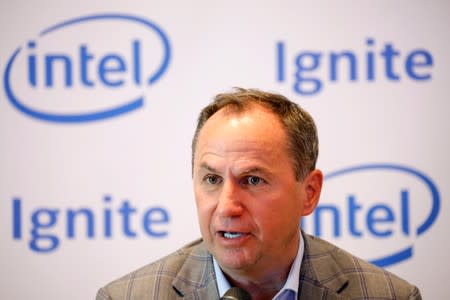Intel launches project to help Israeli tech start-ups
By Tova Cohen
TEL AVIV (Reuters) - Intel Corp launched a project on Sunday to help start-ups in Israel develop technologies in artificial intelligence (AI) and autonomous systems, and said it planned to bring the scheme to other countries as well.
The 20-week program, called Ignite, will offer business and technical support to up to 15 start-ups, the California-based company said, adding it would not take equity stakes in the start-ups now, but might do so eventually.
Intel is one of the biggest employers and exporters in Israel, where many of its new technologies are developed, and this year said it was investing 40 billion shekels ($11 billion) to expand its manufacturing operations there.
"Israel has the deep skill base in AI, autonomous systems and the underlying technologies critical to these inflections that make it a natural choice to launch our Ignite program," said CEO Bob Swan.
Intel paid $15.3 billion to buy Israeli autonomous-vehicle technology company Mobileye two years ago.
"I have absolutely no regrets with the acquisition of Mobileye," Swan told reporters in Tel Aviv, adding that since its purchase Mobileye had doubled its penetration into the high-growth industry of autonomous driving vehicles.
Last month, the U.S. Commerce Department added Huawei Technologies Co to its so-called “Entity List” - a move that bans the telecom giant from buying parts and components from U.S. companies without U.S. government approval.
China is an important market for Intel and Huawei is a large customer.
"What we intend to do is be very focused on serving customers around the world but at the same time abide by the rules. We aren't shipping anything that's specified on the entity list," Swan said.
($1 = 3.6030 shekels)
(Reporting by Tova Cohen, Editing by Ari Rabinovitch and Mark Potter)

 Yahoo Finance
Yahoo Finance 


